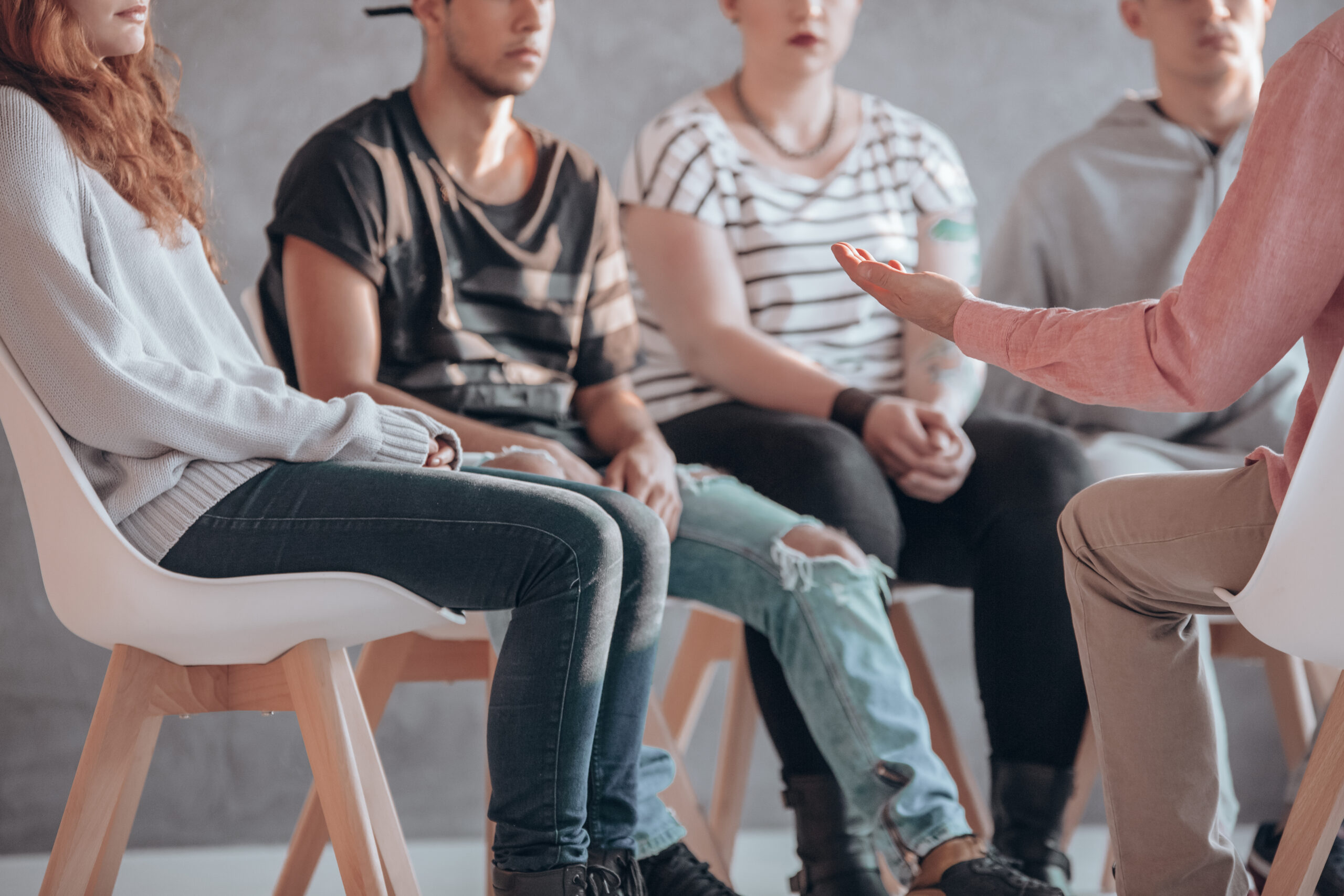When you embark on recovery at Windward Way, group therapy for drug addiction becomes a cornerstone of your care. Grounded in evidence-based practice, these sessions help you build peer connections, enhance accountability, and develop essential social skills. Research indicates that group therapy can be as effective as individual treatment and in some aspects—such as promoting abstinence—may even outperform one-on-one approaches [1]. Throughout this guide, you will explore the benefits of group work, learn how it integrates across detox, residential, outpatient, and step-down services, review the key therapy models, and discover strategies for sustaining your long-term recovery.
Discover group therapy benefits
Group therapy offers unique advantages that can accelerate your path to recovery:
Enhance peer support
When you share experiences in a group of six to twelve individuals, you gain insight into common challenges and successes. Hearing peers’ stories can foster hope and normalize the ups and downs of early recovery. In addition, observing others’ progress reinforces your own commitment to change.
Improve retention and engagement
Studies show that individuals in group therapy are more likely to remain committed to treatment and maintain abstinence [1]. Consequently, consistent attendance and active participation help reinforce new coping strategies and keep you accountable to both peers and facilitators.
Develop social and communication skills
Under the guidance of a trained therapist, you learn to express emotions, give and receive feedback, and navigate interpersonal conflicts. Over time, these skills translate into healthier relationships outside of treatment, reducing isolation and boosting self-confidence.
Address co-occurring symptoms
Group sessions often incorporate strategies for managing anxiety, depression, and other mental health issues that commonly accompany substance use disorders. By working collaboratively, you and your peers can practice coping techniques and mutual support that extend beyond the meeting room.
Review treatment service levels
At Windward Way, group therapy is woven into every phase of your continuum of care, ensuring seamless support from detox through aftercare.
Detoxification phase
Your recovery typically begins in a medically supervised drug detox center orange county where clinical staff manage withdrawal safely. During this stabilization period, brief group meetings help you process early emotional reactions, learn relaxation techniques, and connect with peers who face similar challenges.
Residential and inpatient care
Once you complete detox, you move into a structured residential drug rehab newport beach program. Here, daily group therapy sessions provide education on addiction, relapse prevention skills, and emotional processing. Participating in a stable living environment reinforces new behaviors while daily routines foster consistency.
Partial hospitalization programs
If you step down to a partial hospitalization drug rehab program, you continue to reside on-site part time while attending intensive group therapies throughout the day. This level of care offers a balanced approach, blending structured support with increasing personal responsibility.
Outpatient services
During outpatient addiction treatment california, you attend group sessions several times per week while living at home. This model allows you to apply coping strategies in real-world settings and return to the group to process successes and setbacks.
Sober living transition
After formal programming, you may move into sober living homes orange county, where peer-led support groups maintain accountability. These residences offer a safe, substance-free environment that reinforces skills and reduces the risk of relapse during reintegration.
Examine group therapy models
Understanding the different models helps you choose the format that best meets your needs. The five most widely used approaches include:
| Model | Focus | Key benefits |
|---|---|---|
| Psychoeducational groups | Information about addiction and recovery | Increased self-awareness; practical knowledge |
| Skills development groups | Coping strategies | Enhanced relapse prevention; behavior change |
| Cognitive-behavioral groups | Thought patterns and beliefs | Cognitive restructuring; emotional regulation |
| Support groups | Emotional sustenance and encouragement | Community building; self-esteem |
| Interpersonal process groups | Relationship dynamics | Deep insight into personal issues; complex problem solving |
Psychoeducational groups
These sessions provide facts about how substances affect the brain and body, clarify withdrawal and recovery stages, and promote informed decision-making. By understanding addiction’s mechanisms, you gain a foundation for lasting change [2].
Skills development groups
Often rooted in cognitive-behavioral principles, these meetings teach concrete techniques—such as problem solving, anger management, and stress reduction—to cope effectively with triggers and high-risk situations.
Cognitive-behavioral groups
Focusing on identifying and reframing unhelpful beliefs, you and your peers work on cognitive restructuring exercises. These practices support shifts in perspective that reduce cravings and improve emotional stability.
Support groups
In a safe and nonjudgmental environment, members share personal stories, celebrate milestones, and offer encouragement. The group’s collective wisdom and solidarity help you navigate challenges with renewed confidence.
Interpersonal process groups
Led by highly trained therapists, these sessions explore deep-seated relational patterns and emotional blocks. You receive real-time feedback from peers and facilitators, fostering insight that can transform long-standing interpersonal difficulties.
Plan your therapy path
To maximize the value of group sessions, consider these planning steps:
Assess your individual needs
Reflect on your substance use history, mental health status, and social support network. If you experience severe anxiety or trauma, you may benefit from smaller, more specialized groups.
Determine session frequency
Most programs offer group meetings two to five times per week. In the early stages, daily attendance can solidify new habits. As you progress, tapering to twice-weekly sessions can balance independence with ongoing support.
Select optimal group size
Groups of six to twelve participants strike the ideal balance between intimacy and diversity of perspectives. Larger groups may lack depth, while very small groups can feel isolating.
Coordinate with your treatment team
Communicate your goals and preferences with therapists, case managers, and medical staff. By aligning on structure and expectations, you ensure each session directly supports your recovery objectives.
Address co-occurring disorders
Managing dual diagnosis requires integrated care strategies to address both substance use and mental health challenges.
Integrate dual diagnosis treatment
When you have co-occurring depression, anxiety, or other psychiatric conditions, specialized dual diagnosis treatment center california programs offer combined group therapy that targets both issues in parallel. This comprehensive approach reduces the risk of relapse driven by unmanaged mental health symptoms.
Collaborate with family and loved ones
Family involvement can complement group work by reinforcing healthy communication and boundary setting. Participating in family therapy addiction recovery sessions helps loved ones understand your challenges and learn effective ways to support your journey.
Leverage medication assisted treatment
When appropriate, combining medications with group therapy enhances outcomes, particularly for opioid and alcohol dependence.
Combine MAT with group sessions
Medications such as buprenorphine or naltrexone can stabilize your physiological responses, making it easier to engage in therapy. In a structured medication assisted treatment program, group discussions focus on medication adherence, coping with side effects, and navigating recovery milestones.
Participate in suboxone support groups
If you receive Suboxone, specialized peer groups address common concerns—such as dosage adjustments, stigma reduction, and relapse prevention strategies—ensuring you receive both medical oversight and communal encouragement.
Sustain long-term recovery
Group therapy does not end with formal treatment programs; ongoing support is essential for lasting change.
Commit to relapse prevention groups
Structured relapse prevention therapy drug addiction sessions teach advanced coping skills, such as craving management and lifestyle balance. In addition, practicing these techniques with peers deepens your mastery and confidence.
Engage in aftercare planning
A comprehensive aftercare support for substance use recovery plan often includes alumni groups, 12-step meetings, and periodic check-ins. Regular participation ensures you stay connected to a recovery network and access resources when challenges arise.
Foster peer-led accountability
Alumni-run groups and sober living communities provide a platform for mutual support long after treatment ends. By sharing ongoing experiences, you reinforce accountability and celebrate collective milestones.
Conclusion
Group therapy for drug addiction serves as a powerful catalyst for transformation, offering peer support, skill building, and deeper self-insight. At Windward Way, you will find these evidence-based group sessions embedded within detox, residential, partial hospitalization, outpatient, and sober living phases. By selecting the models and service levels that align with your needs, integrating medication assisted treatment when appropriate, and sustaining engagement through aftercare and alumni groups, you position yourself for a resilient, long-term recovery. Embrace the communal strength of group work and chart a path toward healthier relationships, renewed purpose, and enduring sobriety.






